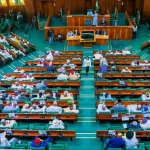Chairman of the Independent Corrupt Practices and Other Related Offences Commission, Musa Adamu, has expressed deep concern over the prevalence of corruption within Nigeria’s Local Government system, describing it as a critical battleground in the fight against graft.
Adamu made these remarks on Wednesday during an engagement session organized by the Commission with the National Anti-Corruption Coalition in Abuja.
The session was themed “Accountability and Corruption Prevention in Local Government Administration.”
He emphasized that local government is the most accessible tier of governance to citizens and serves as the fundamental structure of democracy.
It is, he said, where citizens interact most directly with government through service delivery and development projects.
“It is at the local government level that the daily realities of citizens are shaped, essential services are meant to be delivered, and where development initiatives should directly impact lives,” Adamu stated.
Despite this important role, Adamu lamented that local governments are frequently hotspots for corrupt activity.
“The diversion of funds meant for local projects, ghost worker syndicates, inflated contracts, and the misappropriation of internally generated revenues are but a few examples of the corrupt practices that undermine the very essence of local governance,” he said.
He warned that such corruption has dire consequences on the nation’s progress, stating, “When corruption thrives at the local level, it directly impedes development, erodes public trust, and ultimately stunts the progress of our nation. It is a betrayal of the trust reposed in public officials by the very people they are meant to serve.”
Adamu also reaffirmed the ICPC’s comprehensive approach to fighting corruption, pointing out that their efforts go beyond prosecution.
“Our mandate, as enshrined in the ICPC Act, extends beyond the prosecution of corruption offenders. It encompasses a proactive approach to corruption prevention, public education, and fostering a culture of integrity across all tiers of government and segments of society,” he said.
The event, according to him, was an important gathering to explore practical strategies to tackle corruption in local governance.
He urged members of the coalition to take up the responsibility of monitoring and reporting, emphasizing their crucial role in keeping public officials accountable.
“We must explore innovative ways to empower citizens to demand accountability from their local government officials.
“Citizen participation in budget monitoring, project oversight, and reporting of corrupt practices is paramount. We need to sensitize our communities on their rights and responsibilities, fostering a culture where corruption is not tolerated but actively resisted,” he said.
Adamu also acknowledged the difficulties encountered by local government officials, such as limited capacity and external interference, and advocated for systemic reforms to support ethical governance.
“We must also acknowledge the challenges faced by local government officials, including capacity gaps and, sometimes, undue external pressures. While we will not condone corruption, we must also work towards building a system that is resilient and equips officials with the necessary tools and training to resist temptation and uphold ethical conduct.”






